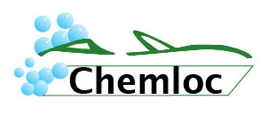Water Quality
Water Quality is the culprit in 90% of cleaning issues
Water Hardness: Hard water is any water containing an appreciable quantity of dissolved minerals (calcium, magnesium and other cations).
- Hard water can be softened (have its minerals removed) by treating it with lime or by passing it over an ion exchange resin. The ion exchange resins are complex sodium salts. Water flows over the resin surface, dissolving the sodium. The calcium, magnesium, and other cations precipitate onto the resin surface. Sodium goes into the water, but the other cations stay with the resin. Soft water is treated water in which the only cation (positively charged ion) is sodium.
An ion is an atom or molecule which has lost or gained one or more electrons, making it positively or negatively charged.An anion is a negatively charged ion, which has more electrons in its electron shells than it has protons in its nuclei. Examples are chloride (Cl-), sulfide (S2-), and oxide (O2-).
A cation is a positively-charged ion, which has fewer electrons than protons. Examples are sodium (Na+), magnesium (Mg2+), calcium (Ca2+), and ferrous iron (Fe2+).
- Extremely hard water may shorten the life of plumbing and lessen the effectiveness of certain cleaning agents.
- A general rule of thumb is that if your water hardness is 3 grains per gallon or greater, a water softener will pay for itself. For frictionless systems, 0 grains per gallon is recommended.
|
Grains Per Gallon |
Parts per million or |
Description |
|
Less than 1.0 |
Less than 17.1 |
Soft |
|
1.0 to 3.5 |
17.1 to 60 |
Slightly hard |
|
3.5 to 7.0 |
60 to 120 |
Moderately hard |
|
7.0 to 10.5 |
120 to 180 |
Hard |
|
10.5 and higher |
180 and higher |
Very hard |
- Damage to equipment and increased energy costs: When hard water is heated, the carbonates precipitate out of solution, forming scale in pipes and water heaters. In addition to narrowing and potentially clogging the pipes, scale prevents efficient heat transfer, so a water heater with scale will have to use a lot of energy to give you hot water.
- According to the American Society of Plumbing Engineers, 1/16 in. of scale can increase energy consumption by 11%. Similarly, the Water Quality Research Council claims that it costs 29% more to heat untreated water.
- Chemicals perform better with soft water. These metal ions in hard water interfere with the cleaning ability of detergents. The metal ions act like dirt and “use up” the surfactants, making them unavailable to act on the surface we want to clean. (See also, “Chelating Agents”)
- For every grain of water hardness, detergent use increases 2% to 4% per 1,000 gal of water used.
|
Chemical Savings using Soft Water |
|
|
Original Water Hardness |
Approximate Savings when Softened |
|
2-5 grains |
15% |
|
5-10 grains |
25% |
|
10-15 grains |
35% |
|
15-20 grains |
45% |
|
20+ grains |
50% |
Total Dissolved Solids (TDS) are hard water minerals suspended in your water. TDS are the total amount of mobile charged ions, including salts, minerals and metals, in a given volume of water, expressed in units of milligrams per unit volume of water (mg/L). They are also referred to as parts per million (ppm).
Contact your Chemloc representative for a water quality evaluation!
- Spot-free water should have a TDS count below 20 parts per million. This may occur naturally or can be achieved through processing. The overwhelming majority of spot-free systems currently in use are reverse osmosis. A TDS Meter can measure the contaminants in your water and indicate how well your water purification system is working.
In winter, wash water temperature should be increased to remove the potential ice, snow, and sludge. In summer, cool water may be necessary as the car surface temperature may reach up to 120 degrees Fahrenheit. Increased detergent activity from the increase in temperature may damage the surface of the vehicle.
- Check the water (from the presoak arch, for example) and maintain temperature
around 110 degrees. Warm or hot water melts fats and oils so that it is easier for
the soap or detergent to dissolve the soil and pull it away into the rinse water. - It is important to consider both the vehicle surface temperature and wash water
temperature. Ambient temperature for the tunnel is ideal.
